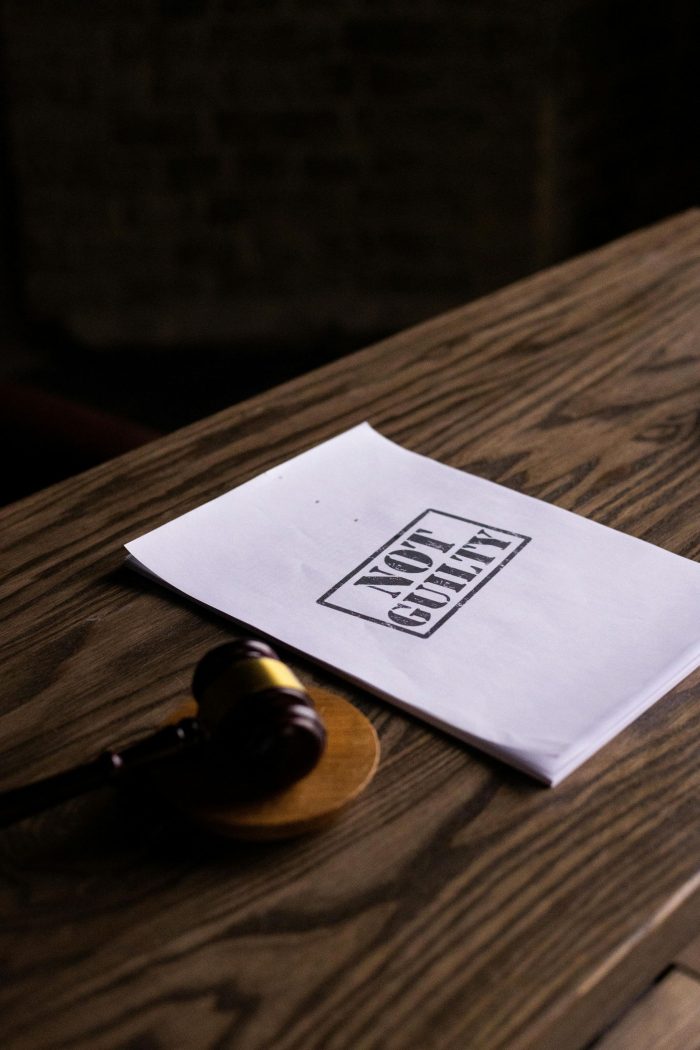
Being charged with a crime is terrifying, regardless of whether you made a terrible mistake or believe you’re completely innocent. Knowing that law enforcement is closely monitoring you can be disconcerting. It can strip you of your freedom, finances, and opportunities.
Instead of panicking and imagining yourself languishing in a jail cell, you must understand what you’re facing and how you can successfully overcome the challenge.
You can’t make criminal charges go away by ignoring them. With the right support, you can face this legal challenge with your head held high.
What Happens When You’re Charged
A criminal charge is a formal accusation made by the government that you’ve committed a crime. The Office of the State’s Attorney serves as the primary prosecutor in most criminal cases and present evidence to prove guilt. The agency works with law enforcement to investigate crimes and decide whether there’s probable cause to move forward.
Criminal procedures may differ depending on the nature of your case and location. Even so, you’ll always have an opportunity to defend yourself.
You may be arrested and taken to a police precinct, where they take your personal details. Within hours, you’ll be sent to the District Court or any of the criminal courthouses that have jurisdiction and informed of the charges against you. However, the police may also use bail schedules to release an accused person before they appear in court for the first time.
In court, you’ll be asked to enter a plea and informed of your rights, particularly the right to choose an attorney. A public defender will be appointed if you can’t afford a lawyer. The judge will determine your eligibility for bail and set the amount and terms for your temporary release.
Latest data from the US courts (March 2023) indicate an overall reduction in filings for criminal offenses by three percent, although immigration and traffic law breaches saw increases of 10% and 49%, respectively.
You Can Be Charged Before Arrest
In some instances, the charge comes before the physical detention. A grand jury can determine probable cause and issue an indictment, which serves as a formal charge. An arrest warrant will be issued against the accused if they aren’t in jail.
The court can skip arrest in minor traffic offenses, such as unlawfully parking a vehicle. You’ll receive a citation instead of a charging document, indicating the offense and your court date. A warrant of arrest will be issued if you fail to appear on the hearing date.
The criminal justice system remains complex. It doesn’t help that state laws and criminal courts have their own nuances. Nevertheless, the filing of charges is only the beginning of a potentially lengthy legal battle.
That’s why you must choose a seasoned practitioner from the area where your case is being heard. If you’re in California, work with a criminal defense specialist in Los Angeles to help you tackle the most complex aspects of legal defense. A local attorney can challenge technicalities and avoid procedural mistakes that can damage your strategy. They can negotiate for a plea agreement or relentlessly fight for your interests in a full-blown trial.
The Two Categories of Criminal Charges
Criminal charges typically fall into two primary categories. Knowing the difference is crucial, as the severity of the complaint is directly proportionate to its potential impact on your life.
Misdemeanors
These are less serious crimes that include petty theft, vandalism, and first-time driving under the influence (DUI) offenses. State criminal laws vary, but most courts handle such transgressions with more leniency. A conviction generally carries fines, probation, and/ or jail time of less than a year, if applicable.
Felonies
Felony offenses, such as murder, sexual abuse, and drug trafficking, understandably carry longer prison sentences. An accused is more likely to be arrested and experience graver consequences.
Not everything is black and white due to the disparities in state rules and handling of various types of criminal offenses. In some states, for example, domestic violence can either be a misdemeanor or a felony, depending on the victim’s age, severity of injuries, and whether the aggressor has previous convictions.
Still, these categories form the basis of how the criminal justice system measures the severity of the crime. They set the tone for the possible penalties and the complexity of the legal fight that’s ahead of you.

How Criminal Charges Impact Your Life
You don’t have to wait to be convicted or acquitted to feel the impact of a criminal charge. It can start messing with your life immediately and lead to lifelong consequences.
Personal Freedom
Some individuals must secure bail to avoid jail time. A bail is money or property that the court holds to ensure the accused appears for future court dates. Without assets or savings, you may approach a bail bondsman, who guarantees bail payment before the court. If you can’t pay, you’ll stay in jail until your trial.
You must comply with certain release conditions even if you make bail. The court may require you to wear an ankle monitor or participate in mandatory check-ins. You may have to surrender your passport or driver’s license.
A conditional discharge could also happen, where a court enters a conviction but doesn’t impose an immediate punishment. This often applies to minor charges, and there are specific conditions for release. It will appear as a criminal record, but not a conviction, though.
Employability
Many employers conduct background checks, and with your consent as an applicant, they may request the proper agencies to access criminal records and police reports.
A pending charge or conviction can make job hunting more challenging, particularly in fields like education, healthcare, and finance. A clean slate is crucial in these sectors, as your role demands interacting with people, sometimes in stressful situations.
Financial Strain
Legal defense is costly, even if you’re working with a public defender or a court-appointed attorney. While you won’t pay upfront costs, some jurisdictions may charge public defense fees.
Private counsels, on the other hand, may charge flat fees or on a per-hour basis. Additionally, there are court fees and potential bail costs. Employed individuals will likely incur lost wages from missed work and pay for the non-economic struggles involved in fighting a case, including stress.
Social Relationships
Damaged reputation and relationships are another invisible burden. Word gets around. Some of your friends and acquaintances might treat you differently, even if you’re innocent. The entire community might start to discriminate against you.
The stigma is real, and overcoming it takes immense effort and time. Your reaction to this life-altering incident may take a toll on your relationships with friends and family members.
Mental Health
Uncertainties can worsen anxiety and stress. You’ll end up having sleepless nights worrying about what will happen in your next court date.
A reckless driving incident that leads to serious injuries or death, for example, can lead to depression or post-traumatic stress disorder (PTSD). Such mental conditions can damage your physical health and well-being, unless you get professional help early.
The impact of being charged can ripple through your life in ways you might not expect. It could limit your travel opportunities because you can’t get a visa. Forget about advanced education, as many schools require disclosure. Your family’s unwavering support and expert guidance from medical and legal professionals are crucial in these life-altering moments.
Concluding Thoughts
If you ever find yourself on the wrong side of the law, gather all your strength to stay calm and make the right decisions. Don’t try to brush it aside and hope it will magically go away. Never go through it alone, either. Get the right legal help to overcome challenges successfully. After all, your defense attorney is your closest ally in fighting for your immediate freedom and future.










